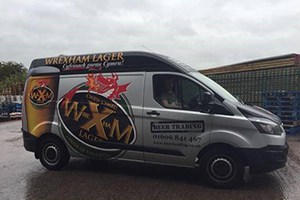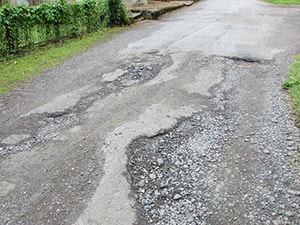Many fleet managers are now looking to fix the cost of their company car insurance premiums like they might their mortgage to avoid rising prices.
This is the discovery of leasing company Arval, which said it is increasingly seeing this as a trend among business owners of all sizes.
What is an insurance premium?
An insurance premium is the payment made by an individual or business to maintain an insurance policy, covering various personal or commercial risks. These premiums can be for policies related to health, auto, property, and more. If the policyholder does not make timely payments, the insurer may choose to cancel the policy, ending coverage.
How an insurance premium works
When you enroll in an insurance policy, your insurer will charge you a premium, which is the amount required to maintain your coverage. Policyholders typically have several payment options, including monthly or annual installments. Some insurers may also require a full upfront payment for the entire year before coverage begins.
The cost of the premium is influenced by various factors, including:
- The type of coverage selected
- The policyholder’s age
- The geographical location of the policyholder
- Any prior claims made
- Considerations of moral hazard and adverse selection
These elements together help insurers assess risk and determine premium rates.
The process of fixing insurance premiums
Insurance companies rely on actuaries to assess risk levels and determine premium rates for individual policies and groups of policies. Although advanced algorithms and artificial intelligence are transforming pricing and sales, human actuaries remain essential to the process. These professionals employ mathematics, statistics, and financial theory to evaluate the economic implications of potential risks associated with a policy or portfolio. They utilise computer models to review historical data and predict future trends, enabling them to set premiums that ensure profitability while remaining competitive.
After establishing premium rates, insurers use the revenue generated from their customers to manage liabilities linked to the policies they underwrite. Many also invest these premiums to achieve greater returns, which can help offset the costs of providing coverage and maintain competitive pricing.
While premiums for life insurance are typically fixed for the insured’s lifetime, vehicle insurance frequently adjust premiums. Increases may occur when a policy period ends, particularly if there have been claims made or if the overall cost of providing coverage rises.
Insurance companies can invest in a variety of assets with different levels of liquidity and return. However, they are mandated to maintain a certain degree of liquidity at all times, as determined by state insurance regulators, to ensure they can meet claim obligations.
Finding the best price for a fixed premium
Many consumers find that shopping around is the most effective way to secure the lowest insurance premiums. This can be done independently with individual insurance companies or through comparison sites that present quotes from multiple insurers, making it relatively straightforward to obtain quotes online.
For instance, the ACA allowed uninsured individuals to explore health insurance options on its marketplace. When accessing the site, users must provide basic personal information, including their name, birthdate, address, and income, as well as that of other household members. Users can select from various policies available in their state, each with differing premiums, deductibles, and copayments. Providers determine premiums based on the enrollee’s location, personal history, and other relevant factors.
Alternatively, individuals can consult an insurance agent or broker who works with multiple companies to find the best quote. Brokers often facilitate connections to various types of insurance, including life, auto, home, health, and liability. However, it’s crucial to be aware that some brokers may primarily be driven by the commissions they earn from sales.
What do insurers do with the premiums?
Insurers utilise the premiums collected from customers and policyholders to manage the liabilities associated with the policies they underwrite. Most companies also invest these premiums to achieve higher returns, enabling them to offset certain costs of providing insurance coverage and remain competitive in the market.
How often do you pay for insurance premiums?
Most insurance companies offer flexibility in premium payment options, allowing you to choose between monthly, quarterly, or annual payments. This flexibility helps policyholders manage their budgets according to their financial situations. Some insurers may provide discounts for choosing annual payments or for having telematics installed, while others might charge additional fees.
What Are the Key Factors Affecting Insurance Premiums?
More technology equals more expensive repairs.
The company explained that with the advent of newer vehicle technologies such as driver assistance and sophisticated headlights, premiums are rising because repairs are proving more expensive in the event of accidents.
Indeed, it cites a report from the Association of British Insurers showing that claims for repair costs in the first quarter of 2019 were £1.2 billion, the highest on record.
Arval UK head of insurance Ian Pearson pointed out that even vehicles typically classed as basic and mainstream are increasingly having advanced equipment fitted as standard, which is pushing up insurance prices.
“There are fleets that work very hard at controlling their risk and have improved safety and reduced their premiums as a result, but even they can have little influence over repair costs,” he said.
Benefits of opting to fix insurance premiums
Mr Pearson added that he believes opting for fixed price insurance products is going to become more popular among fleet owners as they seek to cut costs without compromising on cover.
“It does mean a shift from the normal fleet insurance mindset, but there are a whole range of advantages to securing cover in this way,” he concluded.
Ellie Baker, brand manager at Fuel Card Services, comments: “Although much of the new technology being added to modern vehicles is aimed at improving safety, it’s unfortunate that this is resulting in another expense for the business owners that manage fleets.
“However, it’s good to see there are alternatives to unexpected costs and that fleet managers are already capitalising on them. We’ll be interested to see if fixing insurance prices does, indeed, become a trend.”
Take control of your fleet expenses
Explore our fuel card services designed to streamline your fuel management and enhance savings. With real-time tracking, competitive fuel prices, and comprehensive reporting, our fuel cards empower you to make informed decisions and optimise your fleet’s efficiency.
Contact our helpful team for further information.





